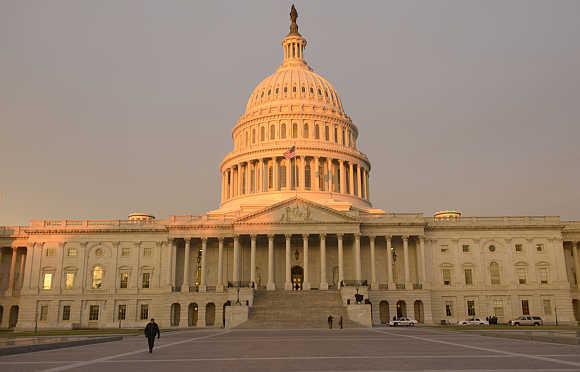US senate snubs China on Arunachal
February 17, 2023 11:41

A bipartisan resolution was introduced in the US Senate on Thursday to recognise Arunachal Pradesh as an integral part of India, pushing back against Beijing's military aggression to change the status quo along the Line of Actual Control.
The resolution condemns additional Chinese provocations, including China's use of military force to change the status quo along the Line of Actual Control, construction of villages in contested areas, publication of maps with Mandarin-language names for cities and features in the Indian state of Arunachal Pradesh, and expansion of Beijing's territorial claims in Bhutan.
The resolution says that China claims Arunachal Pradesh as its own territory, which it calls South Tibet'', and has invoked these claims as part of its increasingly aggressive and expansionist policies.
The United States recognises the state of Arunachal Pradesh not as a disputed territory but as an integral part of the Republic of India, and this recognition is not qualified in any way, says the bipartisan resolution introduced by Senator Jeff Merkley, a Democrat, and Bill Hagerty, a Republican. Senator John Cornyn, Co-Chair of the India Caucus, has co-sponsored the resolution.
Pushing back against Chinese claims that Arunachal Pradesh is its territory, which is part of Beijing's increasingly aggressive and expansionist policies, the Senate resolution reaffirms that the US recognises the McMahon Line as the international boundary between China and the Indian state of Arunachal Pradesh.
The line that was agreed to by Britain and Tibet as part of the 1914 Simla Accord is named after Sir Henry McMahon, foreign secretary of the British-run Government of India and the chief negotiator of settling disputes with China.
On December 9, The Indian and Chinese troops were engaged in a fresh clash in the Yangtse area of Arunachal Pradesh's Tawang sector, in the first such major flare-up after the deadly hand-to-hand combat in the Galwan Valley in June 2020 that marked the most serious military conflict between the two sides in decades. -- PTI





 © 2024 Rediff.com -
© 2024 Rediff.com -